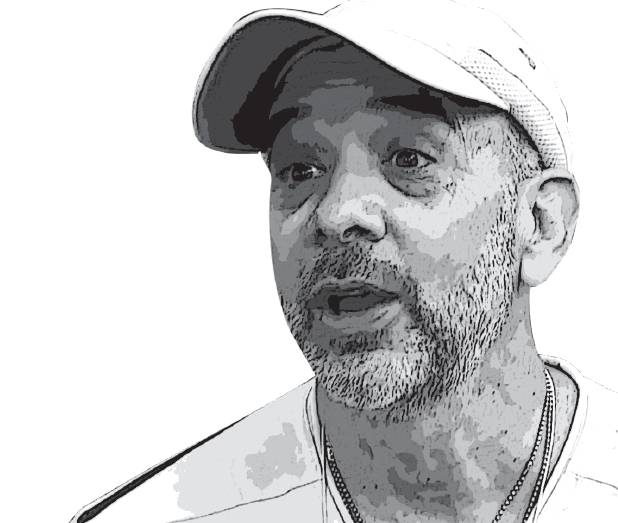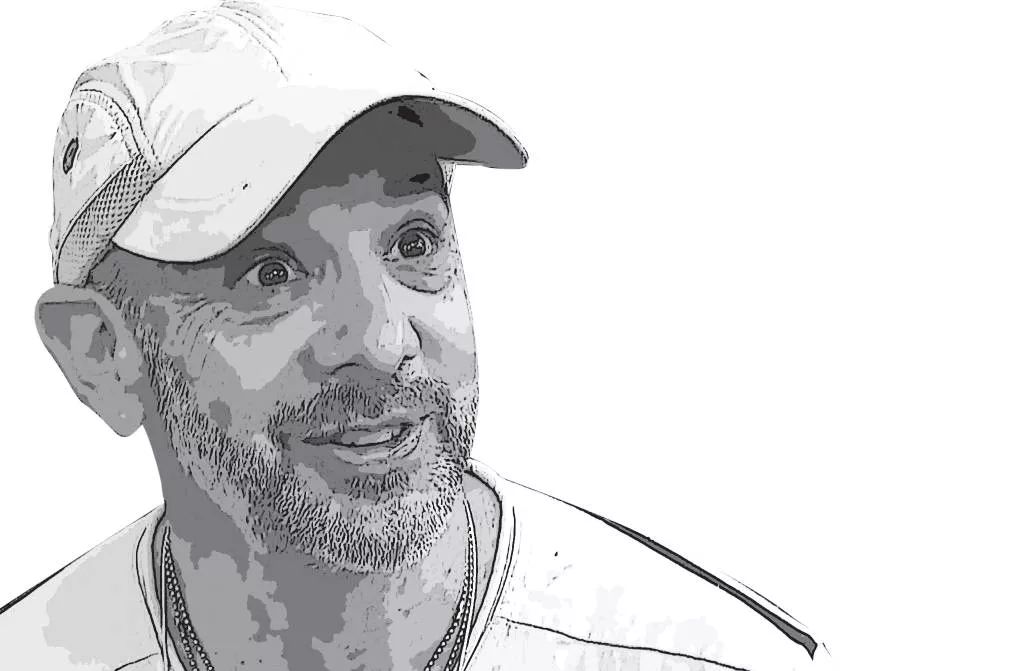This is the set-up given to us by Jerry Gorde, a retired — and self-proclaimed “rethrived — social entrepreneur, impact investor, and philanthropist who is still trying to resolve the contradiction between all that he knows about business and all that he knows about justice.
We asked Gorde, who has become a self-taught scholar and practitioner of employee stock ownership plans, to break down for us the relationship between business and social justice from the standpoint of an entrepreneur.
Our intention was to unpack and understand what social justice looks like not only from an outward perspective — what we’re trying to do — but also inwardly: what we’re trying to be, as conscious companies.
ANSWERING THE CALL
For many in the business of social change, the relationship between justice and business is often sparked the moment we identify a problem or a solution and realize how to address or advance it through the establishment of enterprise. Yet, within this mission-driven approach to social justice lies a common and critical oversight. We are constantly empowered and inspired to design big, bold, and evocative solutions for fighting injustice in the world through business. We can even prove the value of the work through carefully designed metrics and stories of terrific impact. However, if the business itself is not also designed to deliver and distribute justly, we end up reinforcing the problem we’re trying to solve, and risk never truly achieving justice.
“This is a call to conscious companies to examine their structures,” says Gorde, referring to his belief that as entrepreneurs, we are deeply conditioned to reinforce business ownership and leadership paradigms that are inherently unjust. This conditioning, according to Gorde, is the result of a heritage of privilege as business owners, originating from the plantation model of old English and early American enterprise.
Gorde explains: “The Jamestown settlement was more than simply the first British colony in the US; it was also set up and owned as a shareholder corporation for and by the rich nobility and royalty of England, with the purpose of controlling distribution and resource extraction from the New World to the Old World.” Because the corporate charter with the monarchy “made it clear that the company’s primary, almost exclusive responsibility was to return profits to the shareholders,” the extreme need for labor and resources to establish profitable tobacco plantations at extremely low cost justified the reliance on slave labor and the takeover of native land. And business as usual was born.

Jerry Gorde, Founder of Vatex America.
“As long as we are still bound to maximize profits for shareholders, we as business owners are not only pressured to minimize the expense of running a business, but are also driven to limit access to those profits as much as possible…”
PRIVILEGES VS. RIGHTS
Though centuries have passed, “we’ve made very few changes to English property law that emerged out of the 1500s and 1600s. As long as we are still bound to maximize profits for shareholders, we as business owners are not only pressured to minimize the expense of running a business, but are also driven to limit access to those profits as much as possible.”
This cycle — limiting the access to profits in favor of leverage, and limiting the cost of labor in favor of profits — surfaces as an almost unconscious drive within us as business owners. Keeping costs low and limiting access to equity work together in perfect harmony to accomplish one primary aim: maximizing shareholder value. As a result, the entrepreneur is left with “simply no good business reason to share equity with employees. I want to incentivize them to do their best work, but I want to find a way to do that that does not cost me much and does not tie them to the holy grail of ownership,” explains Gorde.
So, then, what exactly does it take to shake off centuries of conditioning steeped in injustice? Gorde suggests that the shift from a conditionedperspective to a consciousperspective starts with the crucial distinction between privilegeand right. “Social justice, as it pertains to free enterprise, is when ownership becomes a right and not a privilege. If we’re going to be socially just, the notion is that some form and level of ownership has to be more broadly distributed than just to the founders. If ownership is separated from wages, as two exclusive domains, then no matter how many forms you give to your employees, no matter how much space you give them to voice their concerns, no matter how big a town square you build, you either have rights or you don’t.”
There is a powerful and inherent tension between the business models we inherited in America and the culture we forged as Americans. Gorde reminds us that “in 1776, we were willing to die to establish the fact that we have rights, not privileges. But the overwhelming majority of corporate enterprises remain steeped in the business conditioning of the 1600s and fail the litmus test. They’ll share ownership with capitalists who give money in return for their rights; they’ll share it with key executives that give talent for their rights; but there is no obligation to share it with the great mass of people who come to work every day to execute the strategy.”
“We regularly see how revisiting and embracing equality as a way of working unleashes unforeseen levels of high performance and innovation.”
RIGHTS TO OWNERSHIP
While even today the idea that every single person is an essential and equal part of the whole is a radical concept in business, it resonates in the hearts and minds of social entrepreneurs. This notion of equality is a key tenet in our work with Shared Leadership, and we regularly see how revisiting and embracing equality as a way of working unleashes unforeseen levels of high performance and innovation. Social enterprises are blazing the trail for actualizing equality by structuring ownership as a right. Phantom stock, which is activated only in the case of a major liquidity event such as the sale of the company, can be given out to employees as a proxy for ownership. Employee stock ownership plans (ESOPs) are becoming more common as a method for distributing ownership and fostering company-wide buy-in from employees. Of course, democratic industrial cooperatives remain the gold standard for the distributed and democratic ownership in business.
Distributing ownership as a right does more than simply align social missions with business structure; there is also a direct correlation to performance. According to Gorde, “The average ESOP company, compared to its most conventional competitor, will outperform by five to ten percent over the long term.” Those numbers are promising, especially paired with the fact that there are more than 10,000 ESOPs up and running in today’s social enterprise landscape. Still, Gorde points out, not all ownership structures are created equal. “If an ESOP is formed and 30 percent of the shares go into the ESOP, that means somebody else still owns the other 70 percent. In privately held companies, that’s usually the founders. Compare that to a cooperative: even if the CEO is in place for 50 years, he or she is only one person with one share and one vote.”
In Gorde’s own company, Vatex, a C Corp acting as a holding company with six divisions in the promotional products industry and employing 160 people in its heyday, the ESOP “evolved out of a very casual, almost sophomoric approach that everybody who becomes an employee of the company will somehow become an owner.” Gorde quickly learned that the act of distributing equity was not an end in itself, but the first step of many in fostering authentic and collective ownership in the company. “We started realizing that everybody needed to know a lot in terms of income statements, balance sheets, measuring performance, etc. We all needed to know how to do that if we were going to be owners. Otherwise, we are only owners in name, not in our ability to function inside the organization and make a total contribution. So that’s when we realized it was incumbent upon us to train ourselves, to educate ourselves, and to cultivate shared leadership.”
RIGHTS TO LEADERSHIP
In Gorde’s experience, achieving justice in a business requires a just ownership structure paired with a radical approach to leadership. Seeing through the lens of wholeness, connectivity, and interdependence, leadership also becomes a right, rather than a role, shared with all who employ and execute the strategic vision of the company.
This consciousness of shared leadership supports the shift out of the inherent inequality of power and authority into the ability to create more just and humane organizations. As employees, we have been conditioned to stifle our deep desire for justice. Shared leadership is rooted in the responsibility that each of us has to the welfare of the whole, and the trust and innate knowledge that together we are capable of this grand stewardship.
As Gorde shared with us, “When you start doing shared leadership, you need everybody to raise the bar. One of the great lessons is that great leadership can come from any level — from the shop floor, from sales and marketing, accounting, finance, etc. That leadership is classless; that leadership is untethered from all of those class distinctions and levels of hierarchy. That wisdom and leadership can arise from anybody at any moment. Which is the most brilliant part of it, right?”
Right.
BENDING TOWARD JUSTICE
There is a crystalline clarity with which Martin Luther King, Jr. gave voice to the deeply human work of bringing into alignment mankind’s hopes and actions. He once said that “our goal is to create a beloved community and this will require a qualitative change in our souls as well as a quantitative change in our lives.”
It is we, as conscious companies, who can answer the call to not only instill justice in our missions, but to also embody it in the very structures of our businesses. Inquiries may be the guide that stirs our courage and strengthens our resolve as we continue to awaken at the societal level to business being an essential doorway to justice. How many of us are thinking about social justice out of the gate in our decisions, in the design of business ventures, and in how it might inform the kind of work we create in the world? Are we dreaming about the evolving ways of leading together within our businesses, placing the brilliance of our shared humanity at the wheel? Are we willing to examine and break free from the privilege we are so deeply steeped in through our historical lineage and societal conditioning in order to cultivate new sight and ways of being together as a universal right? Are we prepared to be a part of the grand healing that Martin Luther King Jr. saw so clearly, by trusting and standing for our collective wisdom from the inside of our organizations, out?
Dr. King invited us into his dream, and his understanding that “the arc of the moral universe is long, but it bends toward justice.” An essential element of our American Dream is that the consciousness of democracy, through the act of business, continues to bend that arc toward justice. May we awaken together. Not tomorrow, but today.

Lori Hanau is dedicated to supporting shifts in consciousness, communication, and community in the workplace through experiential learning. She founded Global Round Table Leadership, where she works co-creatively to coach, guide, facilitate, and steward individuals and teams in opening to their innate brilliance, cultivating the soul of their organizations and their work. She is faculty and Co-Chair at Marlboro College Graduate and Professional Studies and on the board of Social Venture Network.

Claire Wheeler is a freelance consultant and co-conspirator for sole practitioners, community-based businesses, and nonprofits. As principal of Re:work, her passion is to translate the creative genius of people and organizations into systems and structures that make work make sense. She finds power in prose and splendor in spreadsheets.






